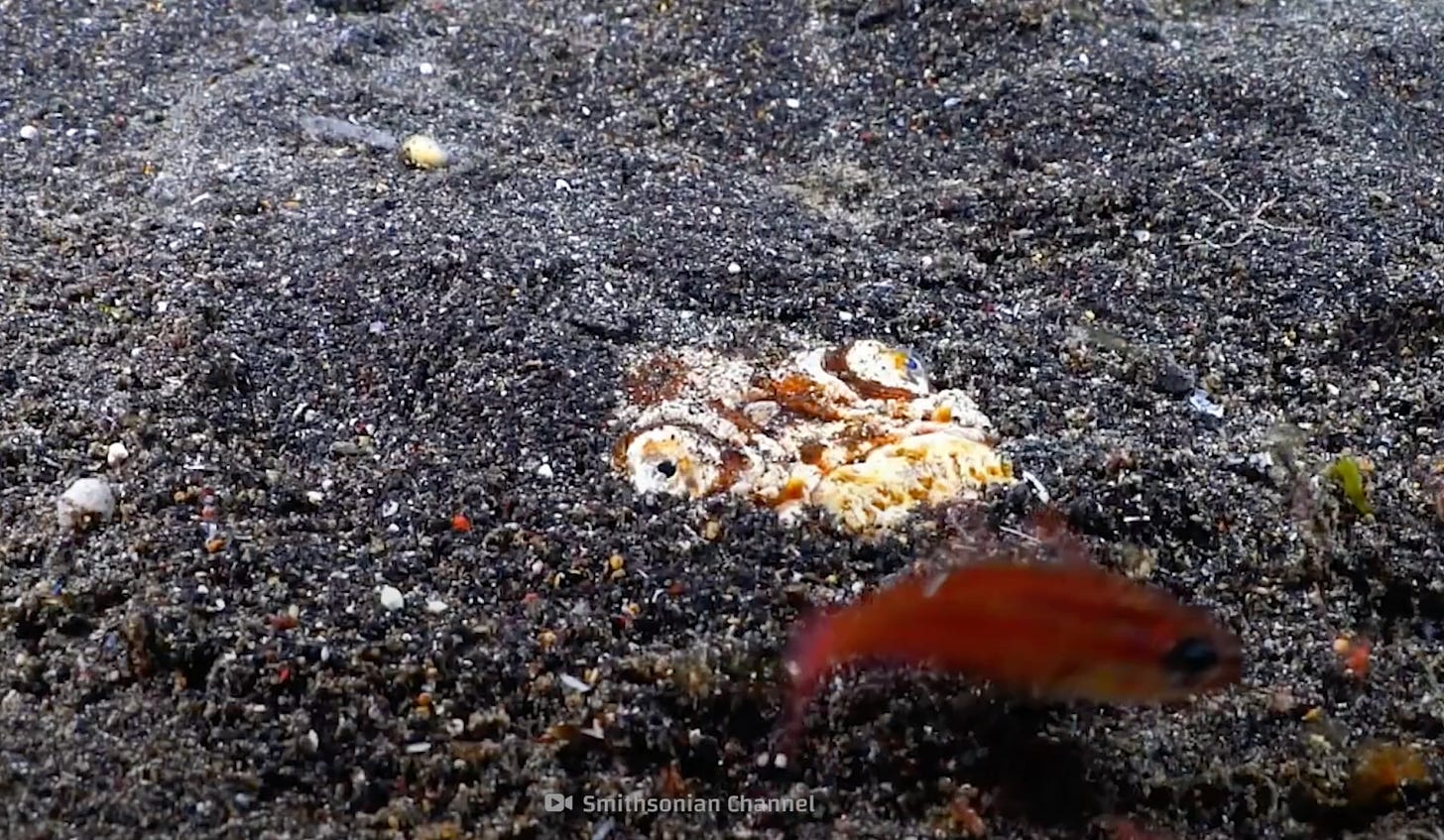It's an understatement that progressive liberal Americans had a difficult week. My friends are all asking each other, “How are you doing?” because many of us felt a combination of emotions—shock, horror, anger, grief, fear—when we woke up on Wednesday. I cried all my tears in 2016. 8 years later, I'm just despondent and frustrated.
Today's post isn't going to be about Trump or the election or politics. My typical response to difficult situations is burrowing into the question, “What do we do now?” and thinking my way to safety. I had initially wanted to write only on Fred Moten's FSU visit—a bit delayed due to my October traveling—but post-election, Moten's concept of fugitivity has assumed a new, pressing tenor. Whether my anxiety is warranted or not, I am worried about the state of cultural politics in the US.
I am worried that a Trump victory vastly emboldens people whose beliefs uphold misogyny, racism, and homophobia, putting many of us and our students at risk of harassment and assault. I am worried that the university, for all its flaws and self-indulgence, will become targeted even more aggressively by ideological witch hunts. I am worried that artists and intellectuals will experience the same level of political censorship that Americans of my generation have only learned about but never faced. We don't need a crystal ball if we look at what Ron DeSantis has done to the New College (in FSU's backyard) and what's happening to classrooms around the country:
martyrdom is not mindful, not demure

What do politicians trying to pass censorship laws and sand stargazers have in common? They both know that stealth is a predatory advantage. Stealth gets stuff done without anyone realizing that stuff has been done. It's deadly and efficient.
The downside? All the work, none of the glory.
Contemporary US social justice culture online baffles me because it's essentially predicated on irresponsible martyrdom performative1 behavior— Look at me! I posted a black square!—followed by intense social policing and ostracization of those who do it “wrong.” Perhaps people actually believe their behavior is philosophically performative; that is, they think that uttering via social media post enacts a real transformation in the political landscape. As someone who is deeply sympathetic to social justice discourses (see! I need to disclaim this to avoid being figuratively flayed), my opinion is that wearing your heart on your sleeve, at least when it comes to social/political activism, just makes you an easy target for the opponent.
Sure, martyrdom is glamorous; after all, if you play your cards right, people will take long weekends in your honor. At the end of the day, flagellation is flagellation, and there is still much work left to be completed.
fighting stealth with stealth

Last month, Fred Moten (poet, cultural critic, and professor of performance studies at NYU) graced FSU with a lecture and some commentary on the Nicki Giovanni documentary Going to Mars. I've been a fan of Moten for a long time, starting with The Undercommons and then In the Break and Black and Blur from his trilogy consent not to be a single being. For those unfamiliar with him, The New Yorker published a great profile in 2018, and there is an abundance of interviews online (ones I've read: here, here, and here). What I appreciate about Moten the thinker is his sprawling mind—he's indiscriminate in where/how he draws his ideas, and based on what I've read, he doesn't seem afraid to dip his toe in (critical theoretical) places some might say he doesn't belong. He is a generous, genre-less thinker but also a rigorous, virtuosic writer (no jargon is too jargon-y for him). Reading his books, I find myself weeping because his language is so beautiful but also so. damn. hard. to fully understand.
(It struck me as laughably ironic when he said to us, “I have a limited vocabulary.”)
When I approached him to sign my copy of The Undercommons, I also really wanted to ask him two questions—one was related to a term he uses in Black and Blur that I had struggled to understand for a long time and the other was about the book's most famous chapter “The University and the Undercommons.”
A) He told me that he and Stefano Harvey had actually wanted to omit that chapter and only left it because it was the one chapter title with the word “undercommons.”
B) I asked him about the phenomenon of academics discussing the chapter in a way that seems antithetical to its premise; his response was that fugitivity should always be a dynamic practice, never a discursive object or symbol. Given his hefty critiques of the university, I also really wanted to know how he survives as someone who is also enmeshed in the system and whether he had any advice on fugitive practices for academics who are trying to find/create pockets of life for ourselves and our students in an oppressively bureaucratic and self-serving ecosystem.
His answer to my very earnest question was strikingly matter-of-fact, the words of someone who has lived and seen and is just trying to get the hell out: Treat it like a job. Just do the work and don't get too wrapped up in it.
Maybe stealth is about keeping your head down, not in the rank-and-file sense but more in the sense of hiding in the sand, of subterfuge, of doing work and not getting credit for it, because the minute someone finds out what you're doing, it's game over. As in, the Underground Railroad was a secret network for a good reason.
The undercommons, its maroons, are always at war, always in hiding.
2025 marks the year of going into hiding, not because we're afraid, but because that's the only way we can get anything done. This is a transitive hiding; we are not hiding to protect ourselves, we are hiding the work we are not supposed to do and the ideas we are not supposed to have to ensure their best chance of survival. In short, we hide to conceal something, to shelter someone.
After all, the subversive intellectual came under false pretenses, with bad documents, out of love. Her labor is as necessary as it is unwelcome. The university needs what she bears but cannot bear what she brings. And on top of all that, she disappears. She disappears into the underground, the downlow lowdown maroon community of the university, into the undercommons of enlightenment, where the work gets done, where the work gets subverted, where the revolution is still black, still strong.
To enter [the undercommons] is to inhabit the ruptural and enraptured disclosure of the commons that fugitive enlightenment enacts, the criminal, matricidal, queer, in the cistern, on the stroll of the stolen life, the life stolen by enlightenment and stolen back, where the commons give refuge, where the refuge gives commons.
The undercommons is therefore always an unsafe neighborhood.
the cat and canary
Post-election, I do fret a bit about my own safety, especially as a woman of color (plus I own enough critical theory books to feel unsafe in Florida… #fahrenheit451), and legitimately experienced a panic attack the other day while reading this Wired article about violent sentiments of the far-right. Don't read it if you are easily triggered. Seriously.
Since I don't have children, my other instinct is to worry about the safety of my students. For my female students, it's about their physical security in a world in which women are so vulnerable to being sexually assaulted (not to mention how rampant it already is in the music industry). For my LGBTQ+ students, it's still common for them to be verbally and physically assaulted, especially here in Florida where the cultural climate is more conservative. It's the same for my students who are people of color. My challenge now is to dream up fugitive things to do, whether for my harp students or my entrepreneurship students; I may never write about them (defeats the point of being fugitive), but if you know me in real life, I'm always happy to chat.
For these vulnerable demographics, we are canaries in a world of cats, forced to practice ingenuity, deviance, and resilience in the face of literal and figurative death. It's not fun to be prey, but I think it's possible to have a little fun evading the predators, especially when many of them are all brawn and no brain.
Tweety just wants to live another day, and he's going to do everything he can to ensure he does. If he can get the last laugh in the end, maybe we can, too.
& that's all, folks!
✨ Noël Éternel 🎅🏼 🎄
This week's Corner of Wondrous and Powerful:
👂🏼 Absolutely floored by the final aria (“Who was here”) in Thomas Adès’s The Tempest. It just reminds me that opera is really at its best when the singing itself is transcendent—spectacle be damned.
📖 I'm currently making my way through Barbara Creed's The Monstrous Feminine, which means encountering a lot of the weirdest section titles:
👀 This week, Patrick and I watched the very silly Oscar Wilde film The Importance of Being Earnest. Highly recommend if you're looking to watch something light and smart.
The common definition, not the philosophical one.









